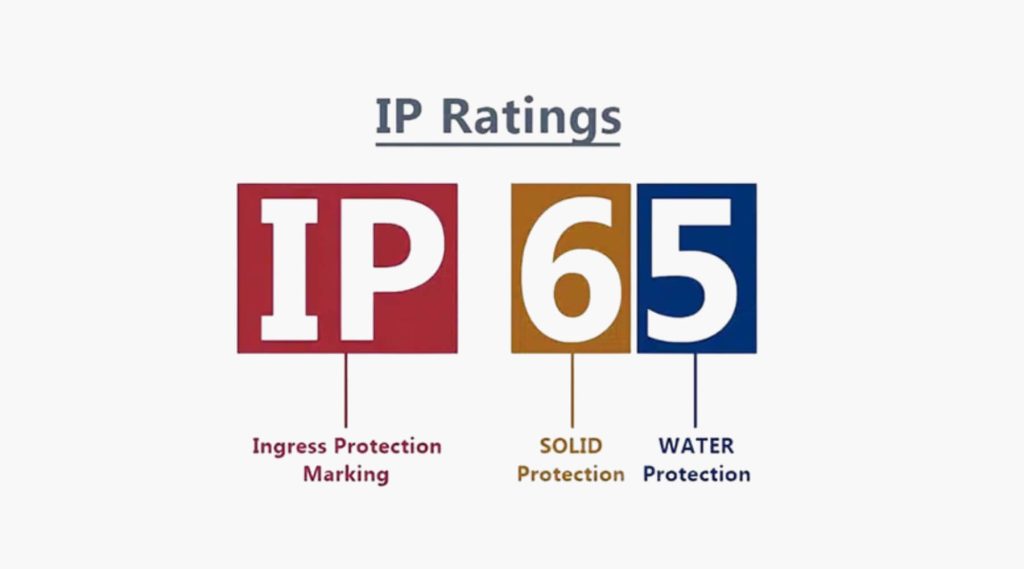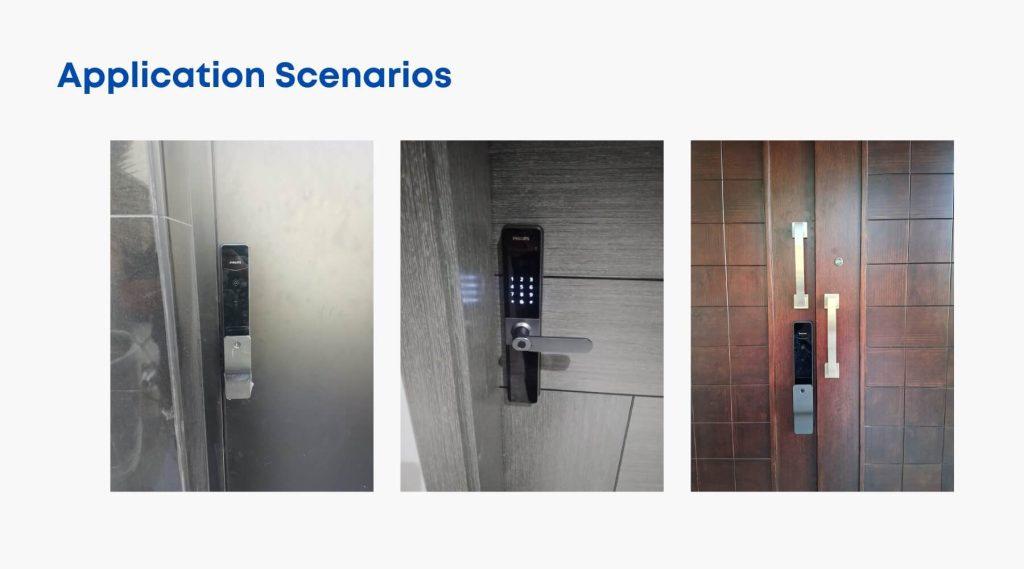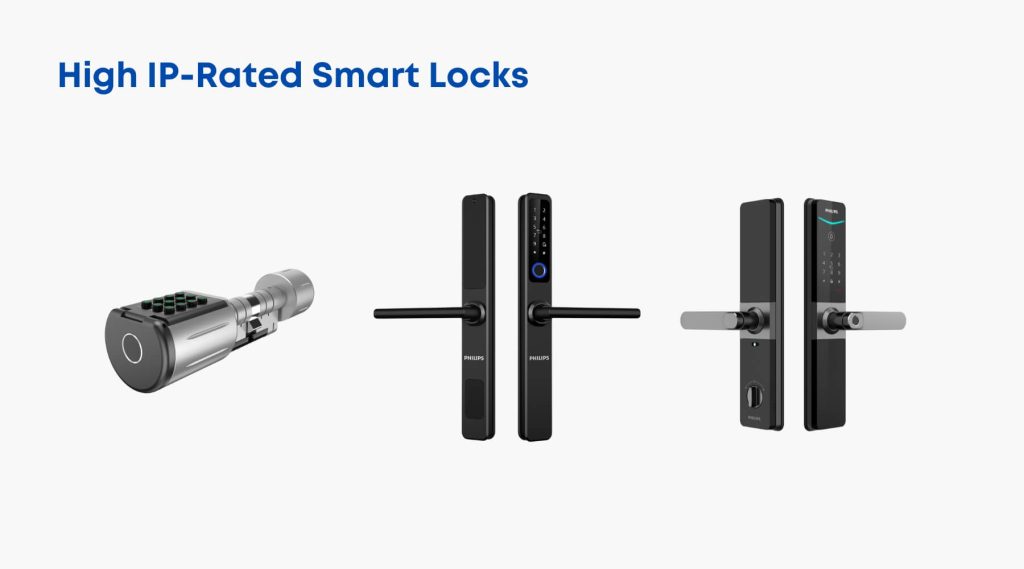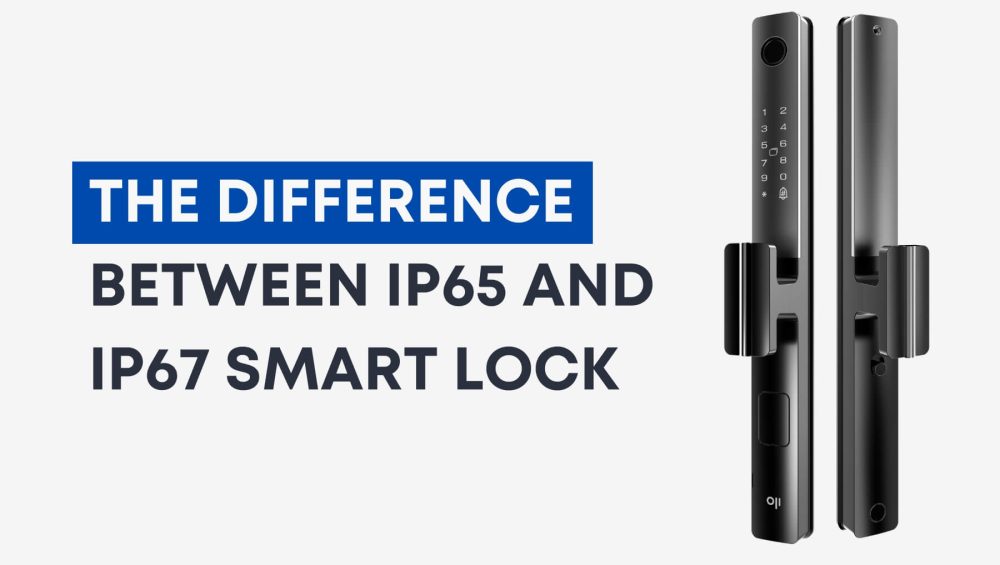In the realm of smart home security, understanding the durability and resilience of devices is paramount. A critical factor in this assessment is the Ingress Protection (IP) rating, which indicates a device’s resistance to dust and water. This article delves into the significance of IP65 and IP67 ratings, particularly in the context of smart locks, to guide you in making informed decisions for your security needs.

Understanding IP Ratings
The IP rating system, defined by the International Electrotechnical Commission (IEC), classifies the degree of protection provided by enclosures against intrusion, dust, accidental contact, and water. An IP rating consists of two digits:
First Digit (Solid Particle Protection): Indicates the level of protection against solid objects and dust.
Second Digit (Liquid Ingress Protection): Denotes the level of protection against water.
For instance, an IP65 rating means the device is dust-tight and protected against water jets, while an IP67 rating signifies dust-tight protection and the ability to withstand temporary immersion in water up to 1 meter for 30 minutes.

Comparing IP65 and IP67 Ratings
| Feature | IP65 | IP67 |
| Dust Protection | Complete Protection (Dust Tight) | Complete Protection (Dust Tight) |
| Water Protection | Protected Against Water Jets | Protected Agains Immersion |
| Suitable Environments | Outdoor Areas with Rain Exposure | Areas Prone to Flooding or Heavy Rains |
| Common Applications | Residential Front Doors, Garages | Coastal Properties, Outdoor Gates |

Application Scenarios
IP-65 Rated Smart Lock
Ideal for environments where the lock is exposed to dust and water splashes but not submerged. Examples include:
• Residential front doors with overhead protection
• Garage doors
• Outdoor gates shielded from direct rainfall
IP-67 Rated Smart Lock
Suitable for harsher conditions where the lock may be temporarily submerged or exposed to heavy rainfall. Scenarios include:
• Coastal properties with high humidity and salt exposure
• Outdoor gates without overhead protection
• Areas prone to flooding
Advantages of High IP-Rated Smart Locks
Suitable for harsher conditions where the lock may be temporarily submerged or exposed to heavy rainfall. Scenarios include:
• Coastal properties with high humidity and salt exposure
• Outdoor gates without overhead protection
• Areas prone to flooding
Final Thoughts
Selecting a smart lock with an appropriate IP rating is crucial for ensuring its longevity and performance. IP65-rated locks are sufficient for areas with minimal water exposure, while IP67-rated locks are better suited for environments with higher moisture levels or potential submersion.
By understanding these ratings, you can choose a smart lock that offers optimal protection for your specific needs.




